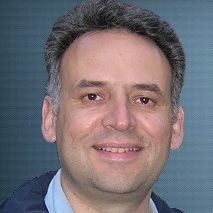 Prof. Georgios Sylaios of the Democritus University of Thrace and project coordinator of the EU-funded ODYSSEA project has been selected by fellow Horizon 2020 project MaCoBioS (Marine Coastal Ecosystems Biodiversity and Services in a Changing World) to serve as a member of their External Advisory Board.
Prof. Georgios Sylaios of the Democritus University of Thrace and project coordinator of the EU-funded ODYSSEA project has been selected by fellow Horizon 2020 project MaCoBioS (Marine Coastal Ecosystems Biodiversity and Services in a Changing World) to serve as a member of their External Advisory Board.
“It’s a great pleasure for me to be able to contribute the experience gained in ODYSSEA and in other projects that I was involved in,” commented Sylaios. “All of them share with MaCoBioS a common approach and objectives: that is, to seek to form inclusive partnerships capable to provide the building blocks in the joint endeavour to safeguard and enhance marine ecosystems and use new technologies to provide innovative services that harness sustainable growth of sea-based economic activities.”
The MaCoBioS project team had assembled a multidisciplinary team of experts to fill the lack of knowledge on the impacts of Climate Change on the most important Marine Coastal Ecosystems (seagrass beds, coral reefs, mangroves, coralligenous and calcareous bio-concretion assemblages, salt marshes and kelp forests).
“Your experience and insight on coastal oceanography and climate modeling would be very much appreciated to help MaCoBioS breaking new ground in the understanding of complex inter-relations between climate change, biodiversity and ecosystem services, and in the transfer of new evidence to policy makers,” MaCoBioS researcher Ewan Trégarot of the University of Portsmouth, whose department is coordinating the project, wrote to Sylaios.

The MaCoBioS project has set four specific objectives for its activity:
- Developing new empirical models on the interaction between climate change, biodiversity, functions and services in marine coastal ecosystems along a geographical gradient from the tropics to the sub-polar regions, incorporating indicators of the ecological condition in the functional modelling of marine coastal ecosystems.
- Establishing a framework to assess the vulnerability of marine social-ecological systems under climate change scenarios. MaCoBioS will develop vulnerability indices specifically for that purpose.
- Evaluating the effectiveness of nature-based solutions and protection measures at enhancing the resilience capacity of marine coastal ecosystems and the delivery of services, with the end goal of providing long-term solutions to climate change threats.
- Providing evidence-based guidance for marine policy formulation and innovative research pathways to support policymakers in developing cost-effective strategies and create further research opportunities to meet the targets of EU strategies on Biodiversity and Climate Change.
Sylaios’ role on the External Advisory Board will run four years, the full cycle of the MaCoBioS project.

